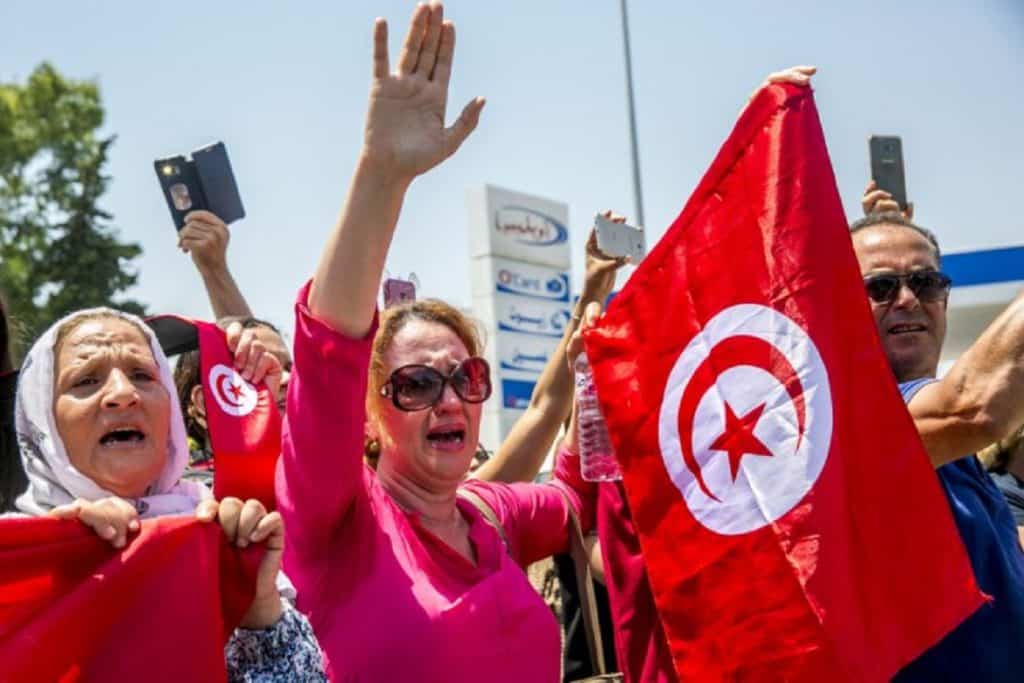By Denis Korkodinov
As a result of the death of Tunisian President Beji Caid Essebsey, various political groups in Tunisia are going to start a power struggle. This could create the conditions for a regional instability, which could benefit external forces.
The change of head of state is acutely felt in Tunisia, since it opens opportunities for a number of radical force groups to claim the supreme power in the country. Beji Caid Essebsei, becoming the president of the Tunisian state, on December 2014, was able to conclude a secret social contract with various power groups, as a result of which, during his time in power, no politicians or groups could compete with his leadership. However, after the his death, everything is going to change.
So Tunisia found itself now in a process where new and old political forces are ready to put forward their candidates in the struggle for the presidency of the country. And the most prominent role in the election process could be played by the Islamic party Al-Nahda, associated with the Muslim Brotherhood.
Until recently, al-Nahda tried not to particularly publicize its activities in Tunisia, due the fact that the positions of the secular groups were here quite strong. Nevertheless, now they clearly intend to consolidate themselves as local nationalist dominant force, with which existing state institutions will have to reckon.
The development of the political crisis in Tunisia is also facilitated by the fragmentation of Beji Caida Essebsey’s institutional heritage. The late head of state could not prevent the division process of thr leading power party (“Nidaa-Tunisia”) into various small fractions. And, representatives of leftist forces, who initially accused him of unwillingness to fight with the Islamists, left the bloc.
In opposition to Beji Caid Essebsei were the former Tunisian President Zin al-Abidine Ben Ali, and the former Al-Nahda leader, Saber Hamruni, supported by Saudi Arabia. The late head of the Tunisian state at a certain stage of his presidential term, counted on Youssef Shahed, who took the post of head of the national government in August 2016. Subsequently, however, Yussef Shahed formed his own political bloc, which significantly undermined the influence of the Nidaa-Tunisia party and, accordingly, President Beja Caid Essebsey.
In the last years of his life, the President of Tunisia had virtually no support among political parties. “Nidaa-Tunisia” broke up into at least five factions, struggling between themselves.
The death of the Tunisian leader, in turn, offers to Youssef Shahed a unique opportunity to strengthen his position in the government, as a result of which he is likely to stand for president of Tunisia. In turn, the Islamist movement Al-Nahda, whose representatives have repeatedly participated in parliamentary elections and have solid experience in the struggle for power, will compete with the former prime minister of the country. However, the greatest concern is the activity of the Tunisian Salafis and the Islamic State, trying to take advantage of the internal political crisis that has arisen.
It is worth noting that only in June 2019 in Tunisia a whole series of terrorist acts was committed. So, on June 27, an attack was launched on the French embassy. In addition, on July 2, a suicide bomber carried out an explosion in the Intilak region, and on July 17, 2019, a video message appeared from the Islamic State militants calling for new terrorist attacks in Tunisia. At the same time, the death of Beji Qaeda Essebsey could become an additional reason for ISIS and local Salafists to step up their activities.
(The views expressed in this article belong only to the author and do not necessarily reflect the views of World Geostrategic Insights)
Image Credit: AP Photo/Hassene Dridi/Yahoo







